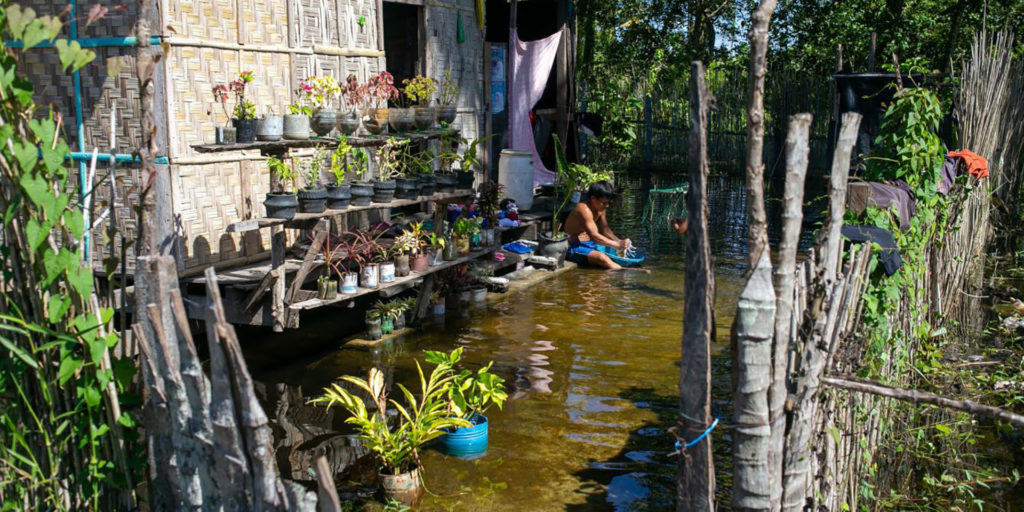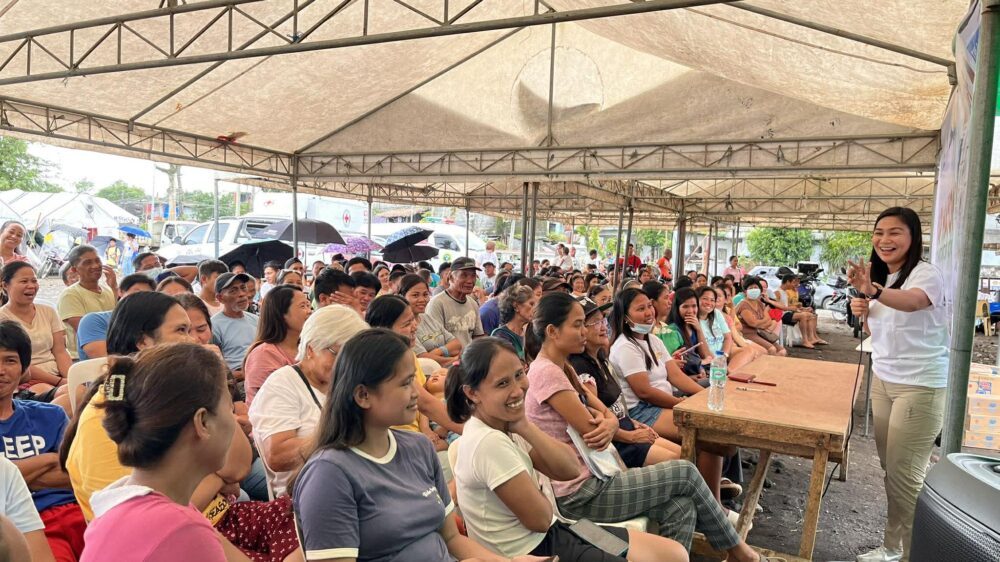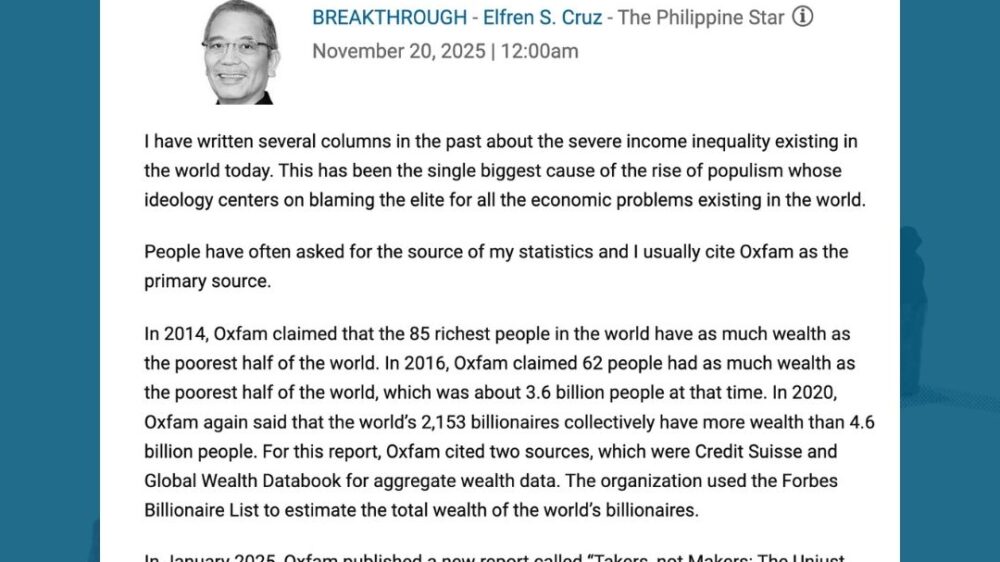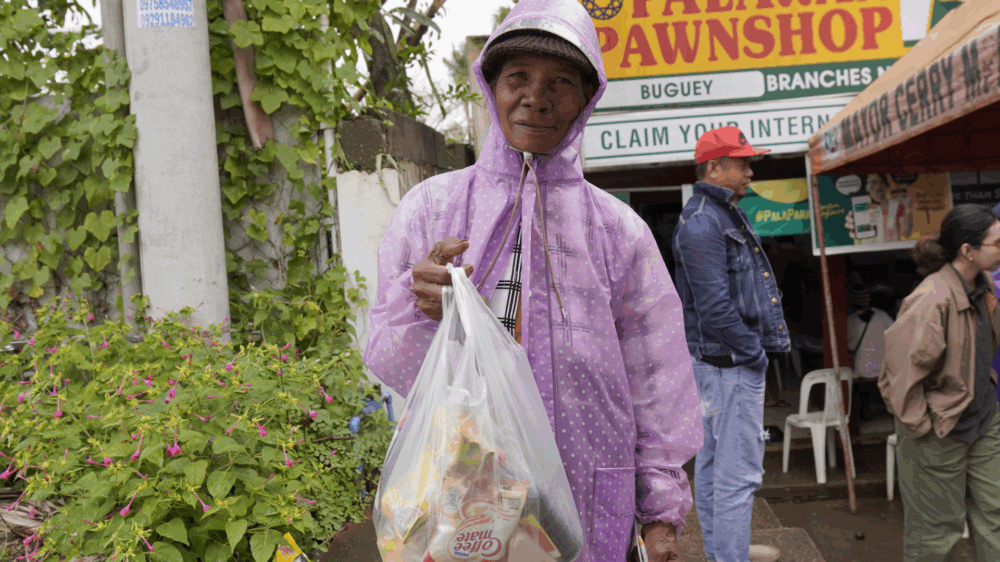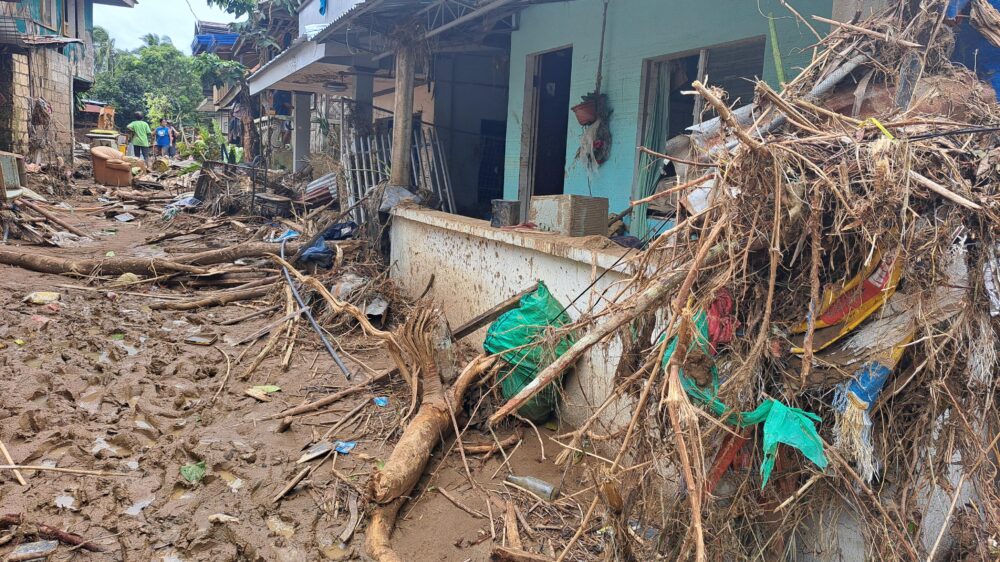In 2008, massive flooding in Cotabato City forced thousands of residents, including the then pregnant Asmina Salik and her family, to spend almost a month in an evacuation center.
At that time, the Rio Grande de Mindanao, the longest river in Mindanao and the second largest river system in the Philippines, swelled due to heavy rains induced by Typhoon Marce. The situation was worsened by the buildup of water hyacinths near the river’s outlet, which blocked the flow of water emptying to the Moro Gulf.
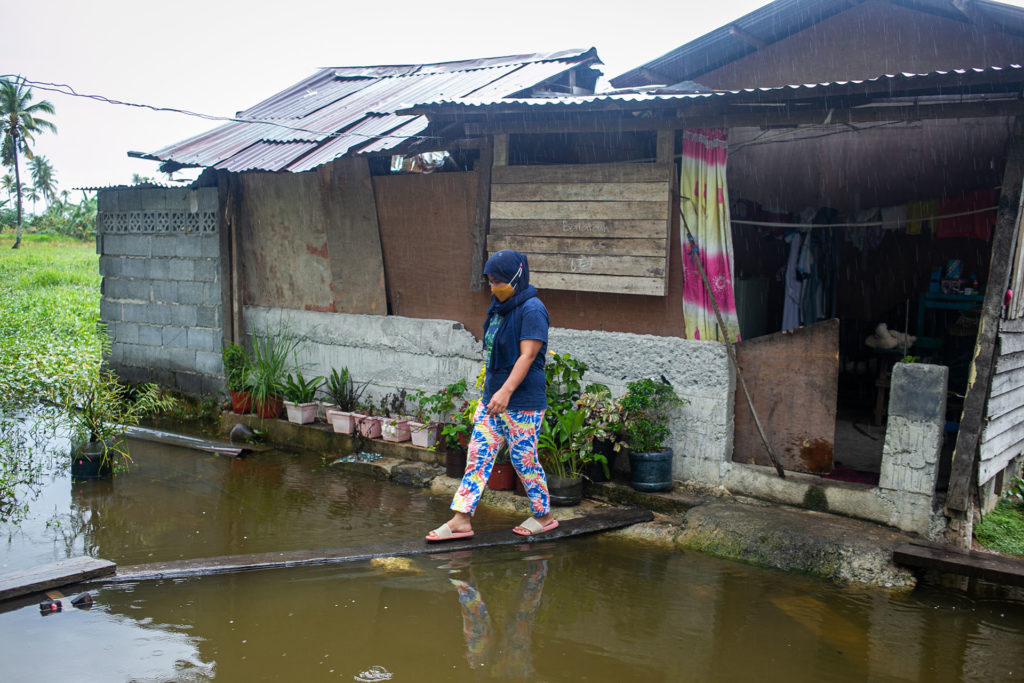
Because of this, Asmina’s community could only be accessed by pump boats or banca (canoe).
At the evacuation center, Asmina suffered from birth pains and was forced to go back home despite the flooding to give birth to her third child.
As far as Asmina could remember, Barangay Tamontaka 3 has long experienced flooding. This is why many houses in their village have been designed to avoid the flood waters. If not built on stilts, the houses have an elevated room where important items are kept. And for those with family members working abroad and thus have more income, they have two-story houses constructed.
Because her family is among the perennial flood victims belonging to the vulnerable sector, Asmina was chosen as a beneficiary of the Strengthening Urban Preparedness through Pre-emptive Action (SUPPA) project in Mindanao.
“The SUPPA project allows us to prepare for our needs during a potential flood,” said Asmina, a mother of six and now the lone family breadwinner after her husband stopped working due to health reasons.
Asmina explained that the cash assistance from SUPPA would be given five days before a calamity was expected to strike.
“It helps my family avoid incurring debt for our basic needs like food,” she said.
The European Union Civil Protection and Humanitarian Aid Operation-funded SUPPA is jointly implemented by Oxfam Philippines, Initiatives for Dialogue and Empowerment through Alternative Legal Services, Inc. (IDEALS, Inc.), People’s Disaster Risk Reduction Network, Inc. (PDRRN) and Humanity & Inclusion.
SUPPA combines innovative approaches through the use of impact-based and risk forecasting models that will enable anticipatory assistance, including pre-disaster cash transfers via a Sharia-compliant digital financial platform
Anwar Kadatuan, a volunteer worker for Barangay Tamontaka 3, said the SUPPA project has been helping around 300 poor families in their village prepare for the impact of disaster caused by flooding.
“Yung sa iba sakuna muna bago ang ayuda. Ang sa SUPPA iba, may ayuda na bago pa man ang sakuna (For others, they wait for the disaster to happen before giving aid. SUPPA is different, the aid comes first even before disaster strikes),” he stressed.
While flooding is nothing new to the villagers, Anwar said it still brings fear to them, especially at night time.
Anwar said residents would usually stay awake to monitor the flood level.
“Kung wala nakabantay, baka magising na lang na lutang na ang mga gamit (If no one is monitoring, they might wake up with their belongings already floating),” he said.
That’s why it is important for the residents to follow the warning signal, to immediately evacuate if the signal warning says so, Anwar said.
Project participants have the freedom to choose how to best prepare using their cash assistance, which is released or triggered when there is a report of a looming flood.
Anwar said residents usually spend it to buy food.
Asmina praised SUPPA as a “unique” initiative in Mindanao as relief assistance is normally given to flood victims after disasters have already wrought havoc on communities.
During the last incidence of flooding, project participants in Barangay Tamontaka 3 received P2,060 through their Paymaya account. This was the fourth time the residents received assistance. The partnership with Paymaya not only makes cash distribution more efficient, it also gave residents financial account access and taught them about personal finance.
“I immediately withdrew the P2,000 and bought some medicines, rice, noodles, canned sardines and laundry soap, among others,” she said.
Through the SUPPA project, thousands of residents in Mindanao are able to prepare for flooding, secure their property and avoid debt, which often cause people to sink further deeper into poverty.

